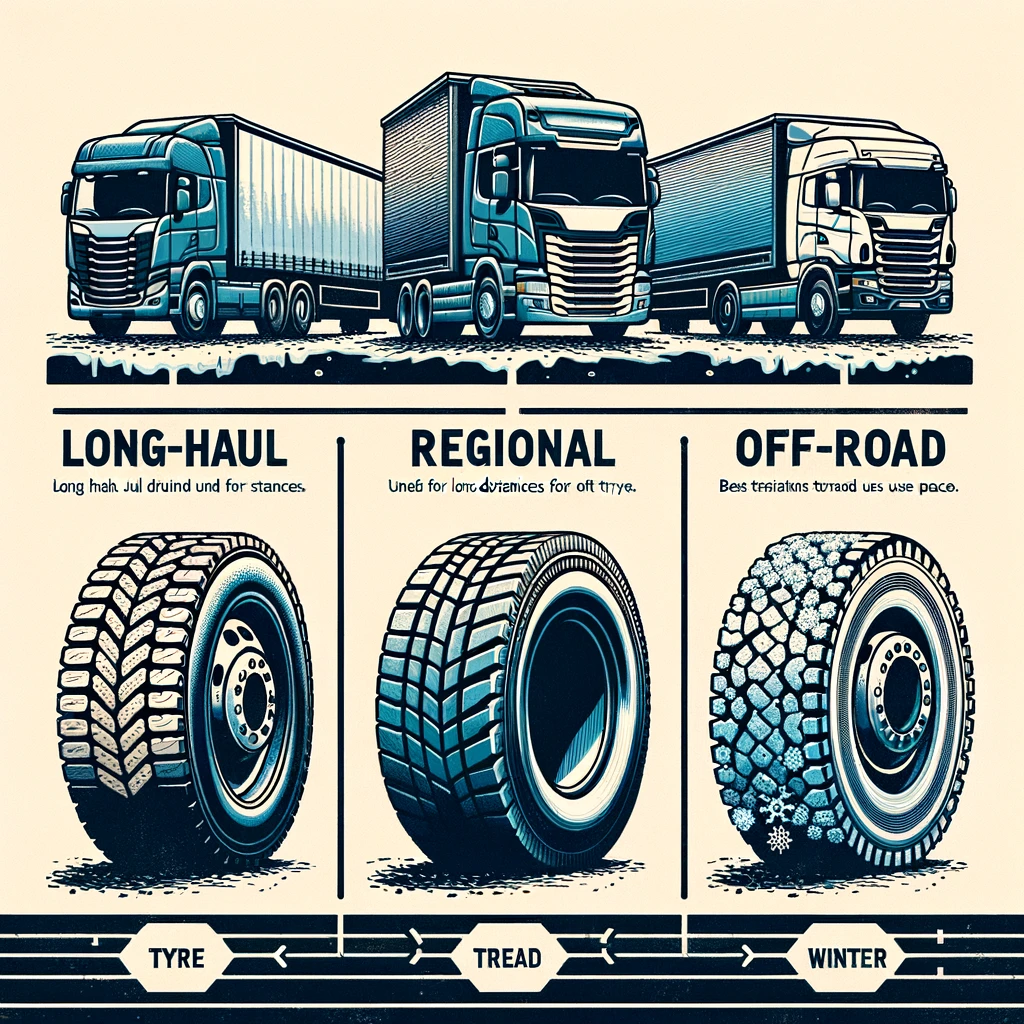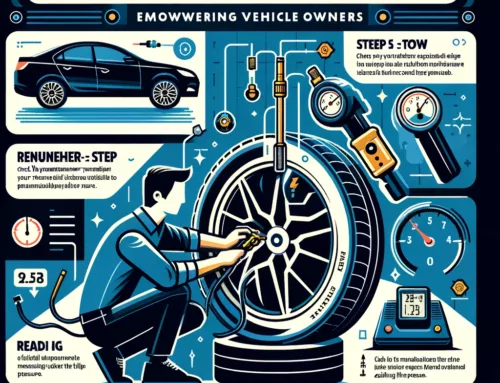
When it comes to the behemoths of the road, truck tires are the unsung heroes, carrying hefty loads over countless miles through all sorts of weather and terrain. Understanding the intricacies of truck tires not only ensures the safety of the cargo and the driver but also contributes to the vehicle’s efficiency and longevity. In this detailed guide, we’ll explore everything from the essential requirements of truck tires, why they sometimes explode, to tips on choosing, changing, and even recycling them. Buckle up, and let’s embark on this rubbery journey with a twist of humor to keep things rolling smoothly.
Requirements of a Truck Tyre
Boldly going where many tires have gone before, truck tires are not just any tires. They are designed to meet rigorous standards, considering the heavy-duty performance expected of them. The requirements of a truck tire can be summed up into durability, load capacity, stability, and fuel efficiency.
Durability and Load Capacity:
A truck tire must withstand the immense pressure of the loads it carries. This is not just about the weight, but also about the distribution of that weight, ensuring the tire can handle both static and dynamic loads without giving up the ghost prematurely.
Stability:
Given the size and weight of trucks, stability becomes a paramount concern. Truck tires are designed to provide a stable ride, even when fully loaded, across various terrains and weather conditions. They should offer excellent traction to prevent slipping and skidding, which could lead to catastrophic outcomes.
Fuel Efficiency:
Yes, even truck tires play a role in fuel economy. With the right tread design and rubber composition, tires can minimize rolling resistance, thus improving the truck’s fuel efficiency. This is a win-win, saving money and reducing environmental impact.
Why Do Truck Tyres Explode?
It might sound like a scene from an action movie, but tire explosions, especially in trucks, are a real and dangerous event. Several factors contribute to this dramatic failure, including underinflation, overloading, and wear and tear.
Underinflation:
This is the leading cause of tire blowouts. When a tire is underinflated, its sidewalls flex more than intended. This excessive flexing generates heat, weakening the tire and eventually leading to a blowout.
Overloading:
Truck tires come with specific load ratings. Exceeding these ratings puts additional stress on the tires, increasing the risk of a blowout. It’s like trying to fit into jeans two sizes too small – something’s got to give.
Wear and Tear:
Like any other part of a truck, tires wear down over time. Driving on worn-out tires significantly increases the risk of a blowout. It’s essential to monitor tire condition and tread depth regularly.
How to Choose the Best Tyres for Your Truck
Choosing the right truck tire is akin to selecting the right pair of shoes for a marathon – the fit, durability, and comfort are crucial. Here are factors to consider:
Type of Use:
Are you driving mostly on highways, city streets, or off-road conditions? Each scenario demands a different tire type, with specific tread patterns and rubber compounds.
Weather Conditions:
Consider the weather conditions you’ll be driving in. All-season, winter, and summer tires offer different levels of traction, performance, and durability based on temperature and road conditions.
Load Capacity:
Ensure the tires you choose can handle the weight of your cargo without compromising safety or performance. Overloading your tires is like carrying a backpack filled with bricks – it’s not going to end well.
How Much Does a Truck Tyre Weight in Kg?
On average, a truck tire can weigh between 30 to 80 kg, depending on the size and type of tire. It’s a heavyweight champion in the world of tires, requiring both strength and technique to handle properly.
How Long Do Truck Tyres Last?
The lifespan of a truck tire can vary widely, generally between 70,000 to 150,000 miles, depending on factors like tire quality, driving habits, maintenance, and road conditions. It’s a marathon, not a sprint, and taking care of your tires can help them go the distance.
How Many Tyres in Truck?
The number of tires on a truck can range from 6 for a standard rig up to 18 for a semi-truck with a full trailer. It’s a veritable centipede of rubber, each one playing a crucial role in the vehicle’s performance and safety.
How Much Does a Truck Tyre Cost?
Truck tire prices can vary widely, from around $200 to $600 per tire, depending on the size, brand, and type. It’s an investment in safety and efficiency, much like buying a good quality mattress for a good night’s sleep.
How to Change Truck Tyre
Changing a truck tire is not for the faint of heart and typically requires specialized equipment and knowledge. It involves lifting the truck, removing the wheel, replacing the tire, and ensuring everything is securely fastened. It’s a workout and a technical challenge all in one.
How to Recycle Truck Tyres
Truck tire recycling is essential for environmental sustainability. Used truck tires can be repurposed into various products, including asphalt, shoes, and even playground surfaces. It’s a way of giving these tireless workers a new lease on life.
Conclusion
Truck tires are the foundation upon which the freight industry stands. Understanding their requirements, how to select the right ones, maintain them, and when to recycle them is crucial for safety, efficiency, and environmental responsibility. By following the guidelines outlined in this comprehensive guide, you can ensure your truck tires are always in top condition, ready to take on the challenges of the road ahead.
FAQs
Q: How often should truck tires be replaced?
A: Truck tires should be replaced based on tread wear, age, and condition. Generally, if the tread depth is below 4/32 inches for steer tires and 2/32 inches for drive and trailer tires, it’s time for a replacement. Also, any signs of damage or irregular wear warrant a closer inspection and possible replacement.
Q: Can I mix different brands of tires on my truck?
A: While it’s not recommended to mix tire brands, especially on the same axle, due to differences in tire performance and wear characteristics, in some cases, it may be unavoidable. If you must mix, try to keep the same type and size of tires together and consult with a tire professional.
Q: How can I improve the lifespan of my truck tires?
A: Regular maintenance is key to extending the life of your truck tires. This includes maintaining proper tire pressure, regular rotations, alignments, and inspections for damage or irregular wear. Also, driving habits can impact tire lifespan; avoid sudden starts, stops, and turns when possible.


